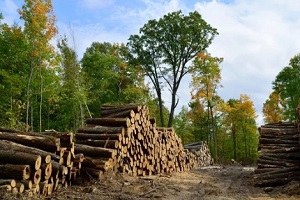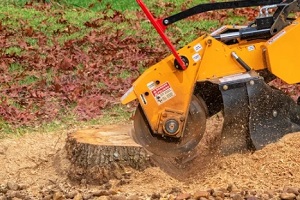
The forestry sector is a large and complex industry, with workers in numerous niches seeing timber production through from their original tract of land to their arrival on store shelves. Throughout this process, a wide variety of specialized equipment is necessary to process and shape the wood into the materials necessary to make anything from tables to garden mulch.
Forestry businesses also face substantial risk; this industry is considered one of the most dangerous in America. As a result, it is wise to invest in comprehensive insurance coverage that shields your business from the financial consequences of liability, damage, and malfunction.
One area of especially high-risk concern is equipment. If an important machine breaks or needs replacement, production may grind to a halt, impacting the business’s bottom line in addition to any repair costs.
Here is an overview of the most common types of equipment covered by forestry insurance so that your business can decide whether this type of coverage is worth the investment.
Delimbers & Feller Bunchers Coverage
Early on in the process of processing timber for use, workers will venture out into timber tracts to collect the source lumber. During this stage of processing, they will rely heavily on feller bunchers to cut down trees.
These machines can drive up to a tree, cutting it almost instantly, and then carry it to another location for further processing. Without feller bunchers, some operations will not be able to feel the timber they need.
Once the timber is cut down, it needs to be stripped of its limbs so that it forms a smooth, workable surface. Delimbers can slide the timber along a track or release an arm that slices the branches off so that the wood can be transported securely.
Saw Mill Coverage

At certain stages of lumber processing, workers will need to cut it into smaller pieces or specific dimensions using saws. This area of the industry poses a substantial threat to workers, and accidental amputations are not uncommon.
However, the machinery itself is also at risk; saw blades and rotors may break down, rendering a facility unable to continue on schedule. With saws coming in such a wide variety of shapes and functions, ideal forestry insurance offers broad-spectrum protection.
Forwarders and Log Loader Coverage
Once lumber has been stripped of its branches and readied for transport, it can be picked up by a forwarder. This vehicle comes with a grappling claw that enables it to grab felled timber and collect it into piles for later sorting and moving.
After forwarders move the logs from their stumps, log loaders will collect the timber and shuttle it to its next destination. A work site will grind to a halt if these machines stop operating because the lumber cannot be transported for further processing.
Wood Chipper Coverage
Some niches of the forestry industry do not convert wood into items—instead, they chip it to make mulch and other materials. Chippers contain a flywheel that powers a series of blades or shredders that break down wood as it is fed into the machine.
Gravity is what pushes the logs down into the impeller, but this process may be assisted by humans. If an internal blade breaks or the motor burns out, a chipper can no longer do its job and may become a hazard to the people around it.
Wood Grinder and Planer Coverage

When wood is nearing the end of its production cycle, any lumber that is meant for surface use will need to be finished to be pleasing to the touch and functional. This requires the help of a grinder, which removes the rough edges and splinters from wood so that it is smooth.
Certain woods can also benefit from the use of a planer, which processes the finished surface to ensure that it is flat, smooth, and of an even thickness. Failure to properly maintain these machines could result in unfinished or low-quality products making their way to store shelves, leading to unhappy customers and a loss of brand loyalty and reputation.
Get Comprehensive Equipment Coverage With Forestry Insurance by Burton & Company
The forestry industry is full of important machines, all specially tailored to their individual tasks. No matter which sector of the lumber industry your business operates in, investing in insurance that covers your specialized type of equipment is a vital part of protecting your profits and ensuring stable business performance over time.
The experts at Burton & Company have worked closely with forestry companies for years to craft tailored insurance coverage that is geared toward the unique and often difficult-to-insure machinery that makes their business a success. Contact Burton & Company to learn more about the equipment that can be covered and get started on a customized policy.
Burton & Company’s team of experienced insurance advisors will analyze your risks and offer you a tailored insurance plan that aligns with your requirements and budget. Contact us today to discover how we can secure your valuable assets and provide you with peace of mind, so you can focus on what truly matters.

